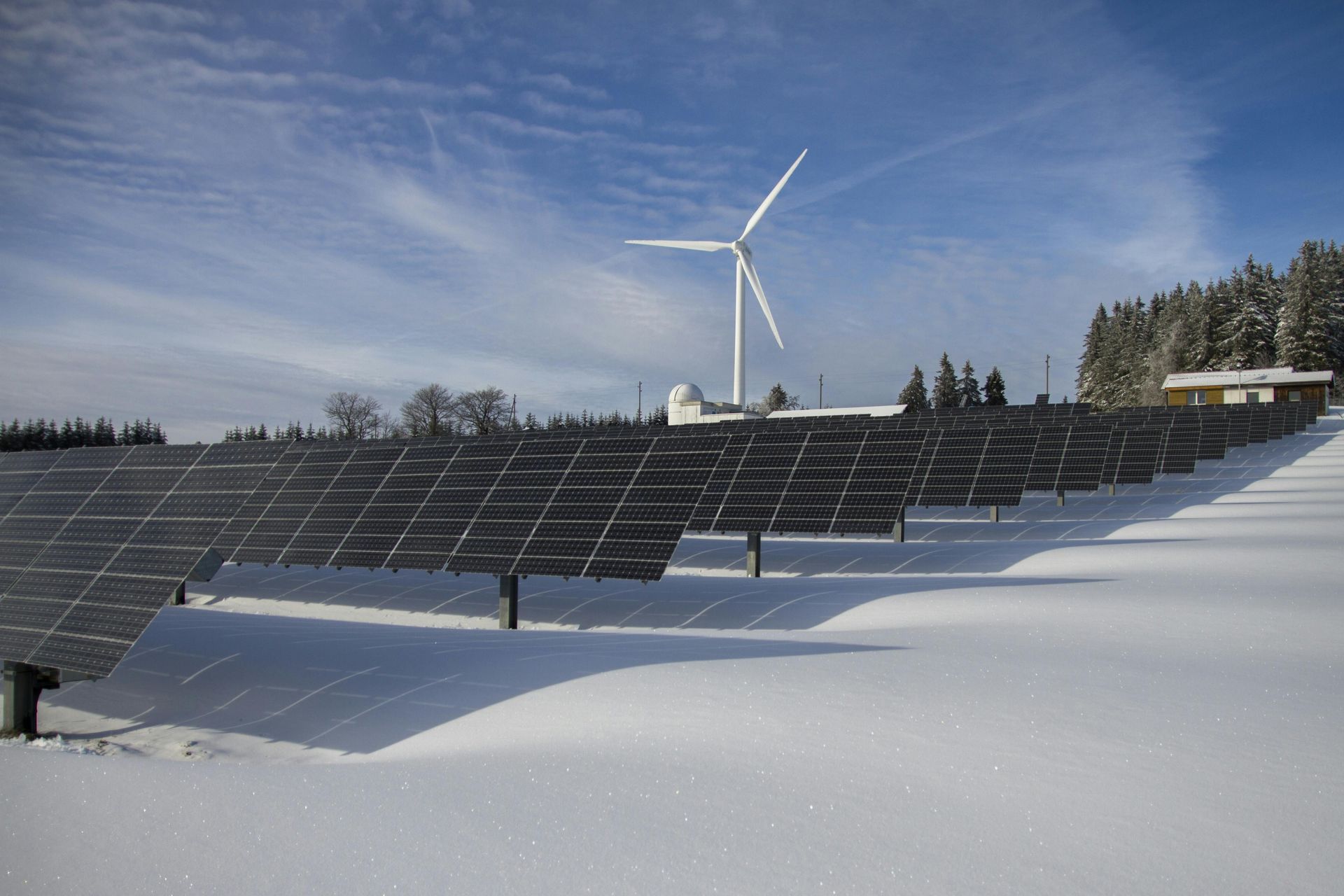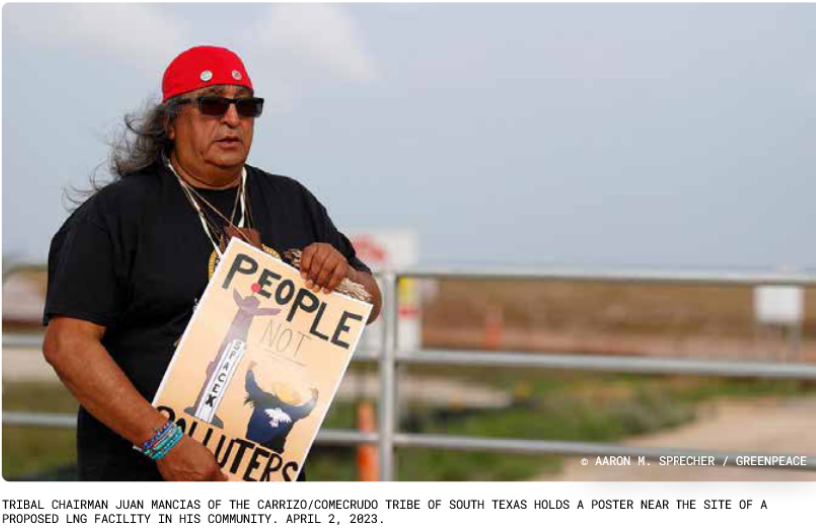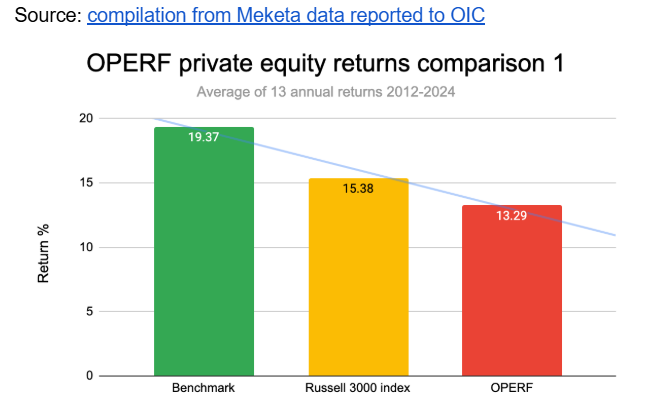"Refreshing" or Green Washing?
I attended the July 19th OIC session with interest. I can understand why several Council members called the information provided by the consultant from Quantum Capital Management “refreshing” – he was quite comfortable with the idea that oil and gas must continue to be part of our global energy mix for decades to come. As CEO of a Private Equity firm heavily invested in oil and gas, it is perhaps not surprising that he paints a rosy picture of the future of his industry.
Several of his assumptions and claimed facts were questionable, however. Specifically:
- “Responsibly sourced oil and gas”
- Because the full energy transition requires $2T-$3T / year in global investment, oil and gas are required in our energy mix
- Carbon capture technology is cheap and easily available; this will make oil and gas carbon-neutral
- My children are angry at me, but responsible people must face the facts that oil and gas are necessary
First, my engineer husband reminds me that goodness always requires a benchmark: what scale are you using to measure it? The Quantum rep claimed that “responsibly sourced oil and gas are less polluting.” It is quite true that burning natural gas puts less particulate pollution into the air than coal or diesel fuel. However, methane – the primary natural gas – is one of the worst contributors of global-warming carbon. The IEA reports that methane is responsible for around 30% of the rise in global temperature. Fossil fuels – coal, oil and gas – are by far the largest contributor to global climate change, accounting for over 75% of global greenhouse gas emissions and nearly 90% of all carbon dioxide emissions.
Please also be aware that “responsibly sourced” is a known greenwashing term. It is part of the fossil fuel companies’ decades-long, highly-funded disinformation campaign – which has often been compared to the disinformation that tobacco companies deployed.
Second, let’s consider the Quantum rep’s assertion that because the full transition to green energy will take about $2-$3 trillion per year of new investment, with the implication that that simply won’t happen, therefore we must continue to invest in fossil fuels. You are in a position to make a very significant difference to that $2-$3 trillion dollar figure. You are investing billions of dollars a year into fossil fuel companies. If you moved those investments into green technologies and green fuels, then you would be moving this country and the world substantially in the direction of meeting that shortfall. This is not even a financially risky proposition – there are plenty of lucrative non-fossil fuel investment opportunities. You don’t need to take my word for it. Here is an article from the International Monetary Fund on how investment funds can drive the green transition.
Third, the Quantum rep’s blithe assurances that carbon capture can be inexpensively used to make oil and gas carbon-neutral. Let’s start with “inexpensive.” How does he know whether carbon capture technologies will be inexpensive? All carbon capture tech is still in research and initial rollout phases. Even with the coming massive IRA investment in such technologies, costs and effectiveness remain largely unproven. Second, even the IEA’s glowing report on carbon capture technologies admits “there is a very large range in costs,” and “CCUS [carbon capture, utilization and storage] deployment has been behind expectations in the past but momentum has grown substantially in recent years, with over 500 projects in various stages of development across the CCUS value chain. Nevertheless, even at such a level, CCUS deployment would remain well below what is required in the Net Zero Scenario.”
Certainly, carbon capture will be required in any scenario to reduce climate change. There is already far too much excess carbon in our atmosphere. But to assert that we can add more carbon with impunity because we will have carbon capture technology to take it out again is, at best, naïve.
Fourth, let’s address the Quantum rep’s reassurances to you that his daughter is angry with him because of his promotion of fossil fuels – with the comforting implication that responsible adults just carry on, even if the children don’t yet understand. I predict his grandchildren will be even angrier with him.
In December, 2021, The Lancet (an extremely respected medical journal) published an international study on young people’s feelings on climate change. Here are their findings: “Respondents across [10 countries, including the USA] were worried about climate change (59% were very or extremely worried and 84% were at least moderately worried). More than 50% reported each of the following emotions: sad, anxious, angry, powerless, helpless, and guilty. More than 45% of respondents said their feelings about climate change negatively affected their daily life and functioning, and many reported a high number of negative thoughts about climate change (eg, 75% said that they think the future is frightening and 83% said that they think people have failed to take care of the planet). Respondents rated governmental responses to climate change negatively and reported greater feelings of betrayal than of reassurance. Climate anxiety and distress were correlated with perceived inadequate government response and associated feelings of betrayal.”
As this month’s extreme global temperatures dramatically illustrate, the fatal consequences of climate change are already with us, and are accelerating. Sadly, these feelings of anger, anxiety, and betrayal are based on the abundant facts on the ground.
It is true that the problem of climate change is enormous. When we roll over and say “it’s too big, let’s ignore it and continue business as usual’ – then we make it even bigger.
What is perhaps most surprising is not that the CEO of an oil and gas investment firm would be bullish on its future, but that Treasurer Read and the OST would choose to have someone with clear and understandable biases present that case. The OIC deserves to hear unbiased and more balanced views of the future from someone not connected to the industry. A presentation by Ortec Finance who did a climate risk assessment for the OST might be a good first step in that direction.
Sincerely,
Elisabeth Genly
Member, Divest Oregon
PERS contributor and beneficiary

Oregon State Treasury should engage or divest from companies fueling a new era of resource conflicts









